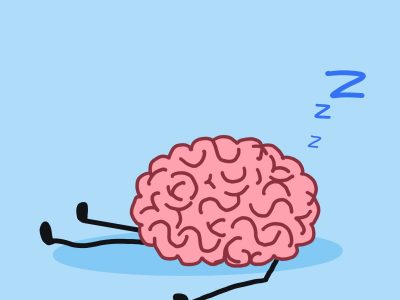As the semester comes to a close, our schedules become busier and our days grow longer. Down time becomes scarce, and we find ourselves yearning for any morsel of relaxation we can get. In so many words, we’re too busy to have the idle time to be bored.
But with summer beginning to peek its head around the corner and the prospect of more down time becoming a reality — at least in comparison to the mania of finals — I’ve been reflecting on what it means to be bored, and why I think we could all benefit from mending our relationship with boredom.
There’s an infamous experiment in which people willingly chose to administer electric shocks to themselves rather than sit alone in an empty room for 15 minutes. The study found that “most people seem to prefer to be doing something rather than nothing, even if that something is negative.”
The lead scientist explained, “They seem[ed] to want to shock themselves out of boredom, so to speak.”
What is boredom, and how is our aversion to it so powerful that we’d rather endure physical pain than the mental agony it supposedly entails?
John Eastwood, a Professor at York University in Canada, defined boredom as “the aversive experience of wanting, but being unable, to engage in satisfying activity.”
I used to think of boredom as the result of an environment that lacks adequate stimuli — in other words, boredom was a product of my surrounding environment, not a product of myself.
Yet blaming it completely on our environments falsely assumes that boredom is merely a product of situational factors, when research suggests that it’s more of a product of our internal psychology.

With that being said, I hesitate to argue that boredom is a choice, because sometimes it seems to arise inexplicably. Instead, I’m arguing that we need to rethink how we react to boredom.
If boredom is the villain, then I’d argue TikTok is my knight in shining armor. But social media and the plethora of digital entertainment at our fingertips are easy escapes which too easily disguise themselves as harmless relaxation.
Research has found that “people who report high levels of boredom propensity have an avoidant disposition…these individuals are more likely to experience depression and anxiety.”
Instead of avoiding our boredom by habitually turning to Netflix or Twitter, maybe we should sit in it and begin to explore what we can make of our boredom. Because escaping from our boredom doesn’t remedy our relationship with it.
I’d argue that sitting with your boredom and letting your mind wander through its thoughts is the best way to tackle boredom. If left to its own devices, your brain will find ways to keep itself engaged in ways you didn’t know were possible.
A study from 2019 found that boredom can help increase individual productivity and creativity. Boredom creates a vacancy in the mind in which daydreaming actually leads to subconscious problem-solving. With the time and space to wander aimlessly, your mind will eventually meander around to those problems stuffed away in the dusty, cob-webbed corners of your conscience.
It’s important not to equivocate boredom with relaxation. Of course, you could improve your relationship with mindfulness through yoga or meditation, but there’s an intentionality behind those practices that’s aimed at relaxation. Boredom hinges on the presence of restlessness caused by a perceived sense of nothingness — that there is nothing to do.
So instead of reacting to your boredom by trying to do something, embrace the nothingness and see what you discover within it. When boredom inevitably strikes again, don’t reach for your phone. Sit, close your eyes, and let your mind begin to explore itself in its discomfort




















































































































